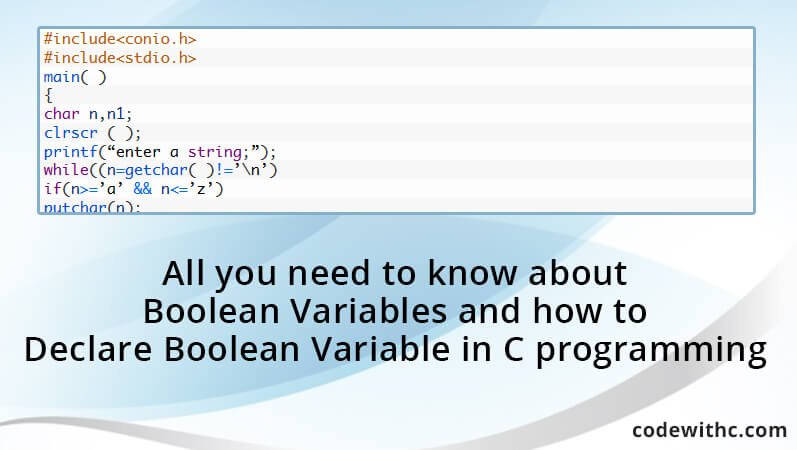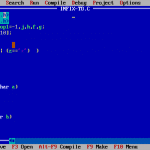Boolean variables are variables which are majorly used in computer programming following a decision. These variables are Boolean data types which can allow the programmers to change the direction of control of execution for some functions in a line of code. The variables when used in programming, should be well defined to avoid the occurrence of syntax and run time errors during execution. They are usually two and they represent a condition of true or false in programming. Boolean variables do not normally exist in C programing.
C language of programming is a high definition language of programming which is most often used for the programming of huge and applications. C programming language is modular meaning it is made up of several functions which are actually independent but again related. All the functions are actually important in the implementation of the program and the program can not run unless all the functions are correct and logically related. These many functions makes it inevitable to employ Boolean variables for decision making on the flow and direction of the implementation of the variables. As well variable initialization and declaration is of great importance and should be done correctly for the proper running of the application.
Boolean Variables Declaration in C Programming
Declaration in C programming entails specifying the properties of the variables in the context they are being used. In C programming however the Boolean data type does not exist thus for you to declare this variable you must initialize it first when you start your code. Whereby initialization is actually the assignment of an initial value to a variable. For this case we can assign TRUE with 1 and FALSE with 0. After the initialization, the variables can then be declared normally as per the standard declaration syntax of C programming language.
typedef enum { FALSE, TRUE } bool;
bool myBool;







